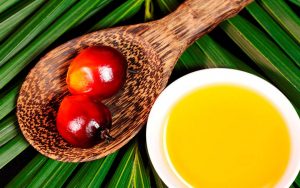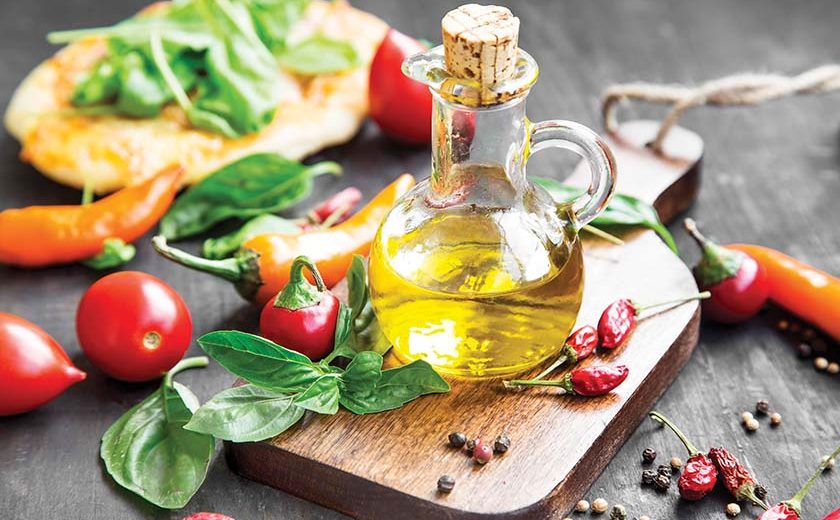It doesn’t matter how fine your cooking skills are, your kitchen prowess won’t go very far unless you’re friends with at least one bottle of cooking oil! By the way, do you happen to know how your oil fares in the health department?
Can you imagine what would meals and dishes be like without the use of an oil or two? Pretty bland, that’s for sure, because as science would have it, oils, which are essentially fats, are a flavour carrier, and they tickle the taste buds quite the same way as sugar does. The only difference is, good quality kitchen oils actually have nutrition in them, where else sugar has none.
Most households already have their favourite cooking oil on standby in the kitchen, ready to be used in all sorts of meal preparations. In this piece, we sort out some of the cooking oils in the local market and what they offer in terms of nutrition and versatility.
Olive oil
The popularity of olive oil can never be outranked for to date, it’s the most versatile of all kitchen oils. It’s rich in monounsaturated fatty acids, which is said to be beneficial for boosting cardiovascular health. Choosing a good quality extra virgin olive oil will ensure you get plenty of health-boosting antioxidants, polyphenols and oleic acid.
Smoke point: Most people don’t realise that the smoking point of a good olive oil is not very high, especially if it’s an extra virgin olive oil, hence it should not be used for cooking methods that use high heat. Seeing that it’s rich in flavour, use it instead to make salad dressings, or simply to drizzle over meals. It’s best used for salad dressings and drizzling over food. Refined olive oil is good for sautéing.
Coconut oil
About 60% of the fatty acids found in coconut oil are medium chain triglycerides (MCTs). These are a form of saturated fatty acids that are said to have marked health benefits including improved cognition. They are also found in some cases to help in weight management in some popular diets. It’s a good replacement for butter in baking and can be particularly used in vegan baking.
Coconut oil can be used safely in high-heat cooking methods due to its high smoke point. It does have a distinctive flavour though, and may not suit certain dishes. Indian and Thai cooking bring out a pleasing, subdued flavour of coconut oil, as most of these dishes require either high-heat cooking or they have to be cooked for a long time.

Palm oil
Here’s a local staple in most Malaysian kitchens, and arguably, the cheapest type of cooking oil available in the local market. Luckily for us though, it provides ample vitamin A, an important antioxidant and skin-beautifying nutrient. It’s a versatile cooking oil that saves costs, used widely in businesses too, for cooking large amounts of foods. Many local households use it in their cooking, especially for frying, due to it’s high smoking point.
Peanut oil
Most of us associate peanut oil, also known as kacang oil, with mouth-watering hawker favourites such as char kueh teow. Well, the good news is, this fragrant cooking oil, despite its reputation, is naturally free from trans fats and cholesterol, and low in saturated fats. It’s appetizing flavour and high smoke point, makes it great choice for cooking techniques that require plenty of heat like deep-frying, or for slow-cooking on high fire, such as roasting or grilling.
Avocado oil
Avocado is, as many already know, rich in health and beauty-enhancing nutrients. It’s oil is rich and flavourful because it is extracted from the flesh of the fruit, similar to olive and palm oil production. It has a very high smoking point, up to 500 degrees, which makes it great for broiling.

Sunflower oil
Sunflower oil isn’t exactly from the flower, but rather it’s pressed from the seeds. It’s not that popular in conventional Asian cooking, which is a shame as it’s high in valuable nutrients such as Vitamin E, and is also low in saturated fat.
Sunflower seed has a high smoke point, and is almost flavourless. It’s great for frying and baking too, for it does not influence the taste or smell of other ingredients. Pure, organic sunflower oil can also be used as salad dressing together with other dressing ingredients.
Sesame oil
Fragrant and appetising, sesame oil adds an appeal to certain foods like no other oil can. It’s a favourite in Asian dishes, including confinement dishes. The tyrosine in sesame oil has been directly linked to serotonin activity in the brain which can help with boosting mood. Additionally, sesame oil is rich in minerals like copper and zinc.
Rice bran oil
Although not a popular choice among Malaysian households, you can still find rice bran oil on the supermarket shelves. It is a rich source of antioxidants, both in various forms of vitamin E, as well as compounds such as oryzanol. Vitamin E is known as a skin beautifying vitamin which helps delay signs of aging, as well as speed up healing. Rice bran oil can be used for high-temperature cooking methods such as stir frying and deep frying.


